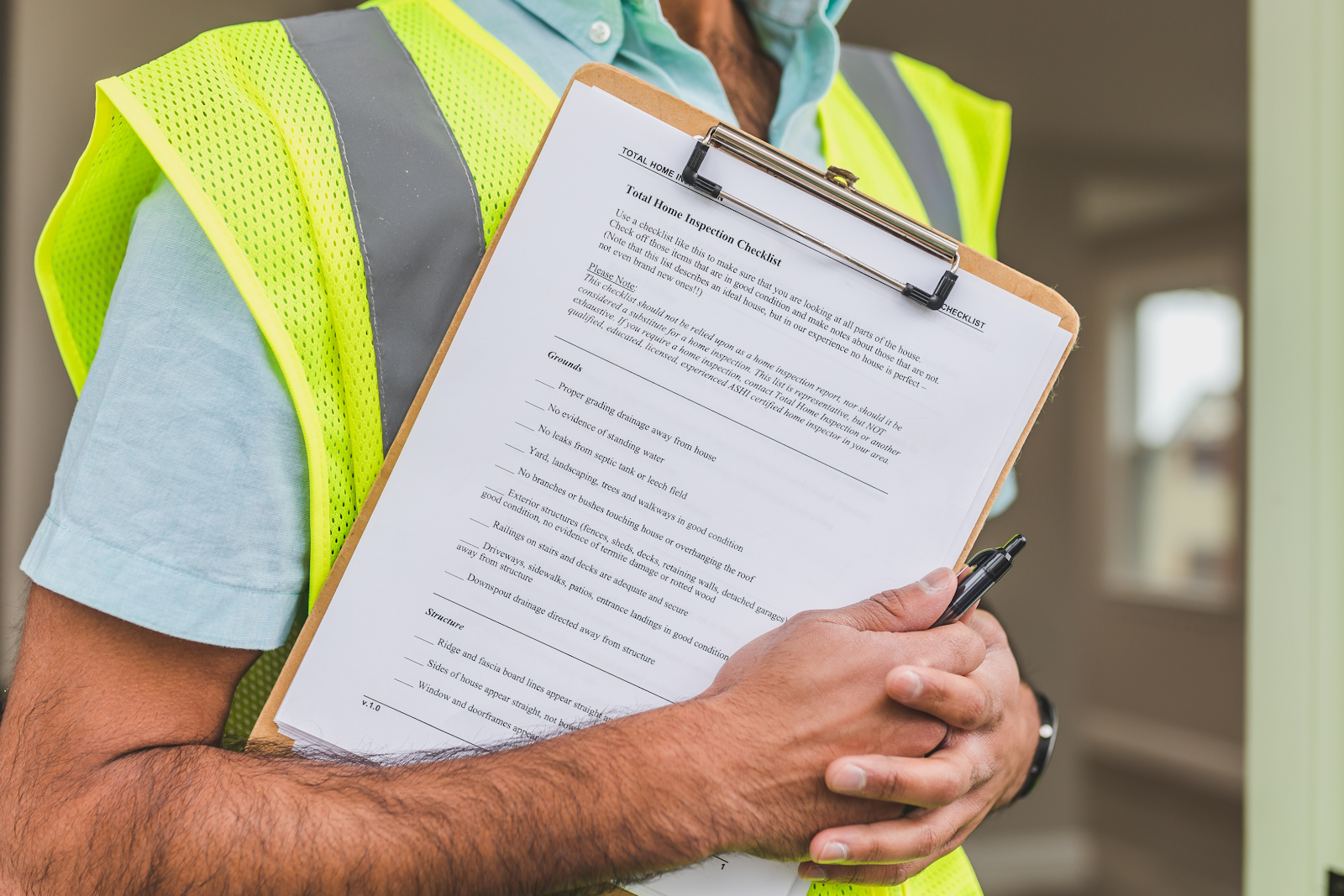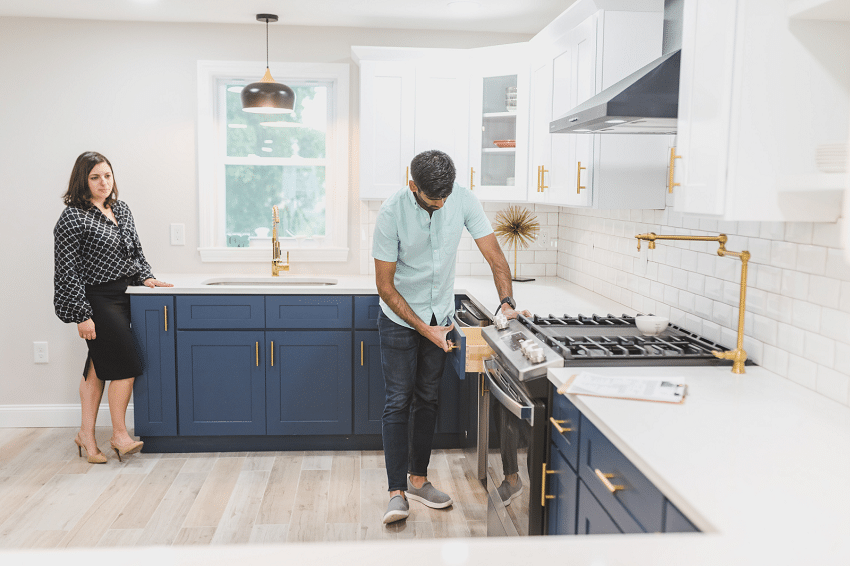Given that they have spent a significant amount of money on their properties, landlords have a legitimate interest in seeing to it that they are properly cared for and maintained. Tenants do, however, also have rights to their privacy and to enjoy their dwellings in peace. This indicates that finding the right balance is necessary. So how can you achieve this balance as a landlord?
Landlords must adhere to best practices and be knowledgeable of local rental property inspection regulations that outline the conditions under which a landlord may enter an inhabited rental property in order to honor this right to privacy.
In this article, we examine the circumstances under which and how often landlords may inspect rental properties.
What is the definition of a rental property inspection?
The landlord or property manager is obligated with performing rental property inspections to determine the current state of the inside and outside of their building. In order for the renter to alert you to any problems or concerns and vice versa, inspections are frequently carried out in their presence.
A productive strategy to establish a mutually beneficial connection with the renter is to include them in rental property inspections. By doing this, you'll let the renter know that you care about the place they call home and that it's up to them to keep it tidy and in good shape.
Why Are Inspections of Rental Property Important?
As a landlord, you can keep your property in good shape before, throughout, and after the rental period by doing inspections on your rental properties. Rental property inspections are a must whether it's a short-term or a long-term rental property.
Property inspections provide you the opportunity to keep tabs on the physical state of your income-producing property, much like your profit and loss and cash flow enable you to do so for its financial status. There's a good likelihood that your cash flow may start to decline if the asset is degrading.
Tenant's Right to Rental Property
Tenants have the legal right to a defined amount of privacy according to state and local legislation. However, in order to conduct inspections, make improvements, and do other tasks, a landlord needs to have some extent of access to the asset they control. State legislators, who have expressly stated what is necessary for both parties, are responsible for finding that balance.
How Can a Landlord Encourage Respectful Tenants?
One of the best ways to ensure you have respectful tenants is to act respectfully towards your tenants first. Most people want to live in a peaceful environment, and building a good relationship with tenants is a great way to ensure guests are happy and that they will take good care of your property.
Second, it’s important to keep your property well cared for by performing regular maintenance and repairs when necessary. When your tenants understand that you’re responsible for your belongings, they are more likely to reciprocate the same sentiment.
Another way to screen tenants out who may disrespect your property is to invest in a type of rental that attracts a certain group of tenants. For instance, investing in a run-down rental property located in a low-income neighborhood may not give tenants the impression that property care is important to you. In comparison, investing in well-kept vacation rentals in highly desirable locations tend to attract guests that understand you want to provide a positive experience in a beautiful home.
If you’re thinking about getting into the rental markets, The Short Term Shop can point you in the direction of beautiful vacation rentals that are more likely to attract high-paying holidaymakers, making your rental property inspection experience a breeze. Get in touch with the team to start your search today.
How Often Can a Landlord Inspect a Rental Property?
Between being a concerned landlord and a prying invader, there can appear to be a thin line. To that end, there is no predetermined response to the query, "How frequently may a landlord perform rental property inspections?" The three primary factors that determine how frequently a property is inspected are its intended use, the professionalism of the landlord, and the privacy of the tenants.
Checking that the building is still in excellent shape, that the renter hasn't harmed it, and that there aren't any maintenance concerns that require quick care should be the goal of an inspection. This frequently entails simple things like changing the batteries in the fire alarms and inspecting for leakage in the kitchen and bathroom.
Landlords, on the other hand, must not irritate their tenants during inspections. According to rental inspection laws, a tenant's right to privacy will be violated if a rental home is inspected too frequently, which may lead to a negative relationship. In the end, landlords should act professionally and schedule regular inspections with advance notice. For instance, they could consent to conduct inspections once a year or every six months. Tenants should be on the same level as the landlords and understand what to anticipate if they are kept informed and up to date on rental inspections.
Different Kinds of Rental property inspection
Your property manager needs to conduct five distinct types of inspections on your property. Each examination aims to find concerns that already exist while also, and perhaps more crucially, assisting in keeping little issues from growing and becoming costly.
Periodic Checkup
Regular inspections of rental properties are often performed once every month, or more frequently if you believe the renter is breaking the terms of the lease, such as bringing an unapproved roommate or pet.
It's crucial to abide by your local landlord-tenant rules and give the tenant enough notice before entering the property for a routine inspection since the renter has the legal right to "quiet enjoyment" of your property.
When a regular inspection is planned, some tenants may feel that they are being accused of doing something illegal.
By stating to the renter at the time of moving-in that the interior and exterior of the property are examined every three to four months to ensure all is in decent form, you may get past this issue. Naturally, this also offers the renter the chance to make any necessary repairs before the damage appears on an investigation report.
Move-in Examination
After the tenant signs the lease but before they move their possessions in, a move-in inspection is conducted in person. A move-in checklist, pictures, and videos should be used by your representative to document the property's existing state.
The renter then signs the checklist, which then becomes an amendment to the lease. Separating ordinary wear and tear from exceptional damages that you might be entitled to take from the deposit (if permitted by law) when the tenant vacates is made easier with the use of a move-in inspection checklist.
Vehicle Inspection
On different days of the week, including weekends and evenings, a drive-by inspection is done to visually assess the external appearance of the property. Since you won't be entering the property, unlike a typical inspection, a drive-by check does not call for prior notification to the renter.
A drive-by at various times allows you or your building manager to see anything out of the norm. For instance, if a certain vehicle is consistently in the driveway but its license plate isn't shown on your renter registration form, it may be the property of an unapproved roommate and call for the scheduling of a routine inspection.
You could get to know the neighbors if you perform a drive-by, which is another benefit. Neighbors next door are a good possible source of details on your tenant's behavior.
However, be mindful not to intrude on your tenant's right to privacy, and keep in mind that some neighbors love to talk, so you should treat everything they say with caution.
Leaving Inspection
Ideally, your renter will renew the lease each year, so you won't need to do many move-out inspections.
However, you should plan a move-out inspection for the day your renter vacates the property when the time comes and they move out. If you wait a long time after the renter has departed, they will be able to state that any damages were not present when they left.
The move-out inspection should thus be scheduled in advance with the renter. Remind the renter that all utilities must be left on (if your contract and local regulations allow) until the inspections are finished and that their damage deposit will be reimbursed if the apartment is in the same state as when they moved in.
To compare the current state of the property to how it was when the tenant moved in, bring a duplicate of the move-in checklist. You should also take pictures and videos to record any damage that goes beyond ordinary wear and tear.
Verifying the appliances' make, type, and serial numbers is another smart move. Even though it seldom happens, some renters have been observed to swap out the equipment in a rental with cheaper versions that appear the same.
Ownership Transfer
It's a good idea to allow the new manager to check the property both inside and out if you employ a new building manager or switch management company while you own the property. By doing this, the new property management will have an up-to-date evaluation rather than relying on reports from the previous organization.
The examination carried out when you first bought the home is comparable to the inspection carried out when you switch management companies. It provides considerably more information than a standard inspection and offers you an understanding of the property's present state as well as any repairs that could be required right away or in the future.
How to Alert Residents of Landlord Inspections
When a landlord wants to conduct a rental inspection, too many homeowners feel as though they are disturbing the renter. They often don't realize that they have a right to do this. Even if renters object to the landlord entering, it is legal.
Experienced landlords put language in the lease contract that specifies they will conduct routine inspections upon written notification to the tenant. Other landlords make certain to notify renters in writing of the impending inspection. In most states, a landlord needs to give at least 24 hours notice before entering a property to conduct an inspection, but good practice would be to offer a minimum of a few days.
When it pertains to rental inspections, successful landlords rarely worry about what their tenants may think. A landlord has the right and is wise to conduct an inspection to safeguard both themselves and the tenant. The landlord must be effective, direct, and fast to leave. Landlords should inspect their rental homes to make sure their property investment is well-maintained.
Don't worry if you're overwhelmed by the papers that landlords must keep on hand, like leases and inspection notices.
Can a Landlord Enter by themselves?
The answer to this question is both "yes" and "no".
Let's start by discussing when landlords are permitted to enter uninvited. Landlords are permitted to enter rented properties to conduct essential inspections or repairs as long as they have given the renter advance notice and received their consent.
In addition, landlords have the right to enter a unit in an emergency situation, such as when a fire starts.
However, a landlord is not allowed to enter the rental unit without the tenant's consent or without first notifying the tenant of the visit. Tenants have the right to fair and peaceful use of the property, even when the landlord is the legal owner. That makes it impossible for the landlord to enter whenever they want to, simply because they want to.
Include specific details in the lease on when you can and cannot access the premises, how you will notify the tenant of inspections or maintenance appointments, and what they need to do if they need to reschedule an inspcetion. To avoid any problems, make it simple to communicate with renters about inspections and visits.
Can a Tenant Decline a Landlord's Inspection?
A tenant may seek a change in the date and time of the rent inspection, but they are not permitted to flatly object to your visit to your rental property.
A renter is in breach of their lease terms and fundamental landlord rights if they attempt to do this for an extended length of time. Sending a notice to vacate and filing it in court may be necessary to get access, at least until the renter changes their mind.
Final Thoughts
When checking their properties, landlords have to be careful not to overstep their power and must act professionally while abiding by the law. This is crucial to ensuring your renters have a positive rental experience and, ultimately, aids in tenant retention. It also helps you avoid potentially costly legal action. However, regular rental inspections must be conducted, and landlords must occasionally access their properties.
Your top responsibility as a landlord should be to give your tenants a secure and well-kept home. As a result, it is more crucial to figure out how to perform suitable property inspections in accordance with laws and for the advantage of both parties than it is to ask how frequently a landlord can visit a property.
To simplify the need for complicated inspection processes, it’s best to begin your relationship with tenants in a positive, clear, and respectful way. It’s also advantageous to invest in properties that attract well-meaning tenants in the first place, which helps ensure your inspections go smoothly. Get in touch with The Short Term Shop to find the best vacation rentals in beautiful destinations and start your landlord experience on the right foot.








